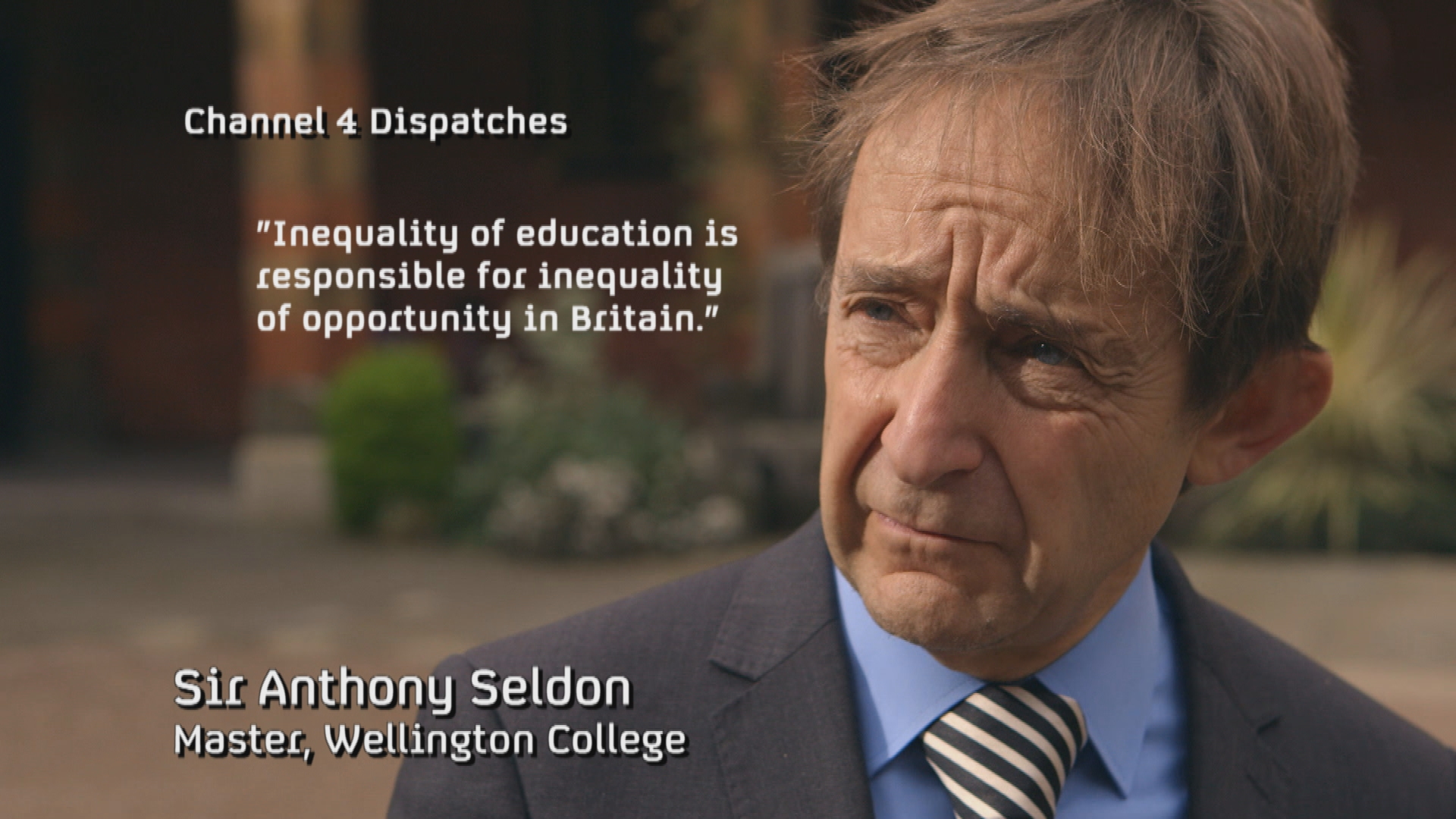At 8pm tonight, I’m presenting a Channel 4 Dispatches documentary on inequality, entitled How The Rich Get Richer. In 27 fact-filled minutes, I go through a lot of things – arguing that inequality is about more than tax receipts, and tackling it means more than complaining about rich people. In fact, I’d argue that the chief sponsor of inequality in Britain is state education.
Everyone knows that, in general, state schools are better in leafier areas. That’s why wealthy parents pay so much for houses in a good catchment areas: make no mistake, they’re buying their school place as surely as someone who sends their child to Eton.
Ch4 Dispatches commissioned the Centre for Social Justice to look at five years worth of exam results, and then map it against deprivation. In theory, there should be no link: if schools serve rich and poor equally – giving extra support to deprived communities if needed – then the results should be the same. Instead, we found a picture of near-perfect inequality:
Teaching unions are very good at blaming the parents, and saying (in polite terms) that poor kids will never get as decent exams as the rich because of complex sociological factors. This is what’s known as the ‘soft bigotry of low expectations’. And while it’s true that kids in Britain can start at a disadvantage, the gap – appallingly — widens as they make their way throughout the state system.
It’s a shame that so many who are genuinely upset about inequality in Britain can’t see past the private school system. Of course, no analysis of inequality in Britain is complete without looking at private education. We filmed at Wellington College and spoke to its master, Sir Antony Seldon. The fees are £35,000 a year, and you can certainly see why it helps the rich get richer. This money buys you the best education in the world. I sat in on a few classes, spoke to the pupils, and marveled at the quality of tuition and support that these kids were getting. There are very few things that Britain genuinely does better than anyone in the world, and private education is one of them.
Wellington doesn’t tolerate its pupils becoming snooty or aloof: I met a pupil who works in a food bank, for example. Another two were on scholarships. I sat in on a class of 17 year olds comparing styles of American literature – something I can’t do even now. I suppose you could go there and get angry at the privilege these kids enjoyed. I couldn’t. You play the hand you’re dealt in life, and the pupils at Wellington – and schools like it – are dealt the best hand imaginable.
It would be easy when making a film like this to walk away with footage of this incredible school and say: bingo! These kids get superb education, they literally get taught grit and character, its an unfair advantage over state-educated pupils so shut ’em down and make Britain fairer! But this is rather facile, and has diverted attention from the greater scandal. The state sector educates 93 per cent of pupils, and it serves the poor far better than the rich. In Britain, if you’re poor, the odds are your child will be given a bad education and then become poor as well.
Michael Gove’s reforms have helped, as did Tony Blair’s. But reform is tough, the path of the reformer is strewn with landmines. Blair gave up, and Gove was sacked. It seems as if the school reform agenda is being abandoned.
So yes, Britain’s private schools are world-class. But it’s the state system that threatens to send inequality cascading down the generations. I’ll leave the last word to Sir Anthony:
‘Inequality of education is responsible for inequality of opportunity in Britain, and we must devote far greater resources if we are to thrive as a nation, if we are to be a good society full of law abiding citizens we need to be thinking much more about what happens inside schools.’
PS I was put in the scent of this by pioneering research from Chris Cook of the FT who made a ‘graph of doom’ showing broadly the same thing for years ago. Mine is a version of his.








Comments